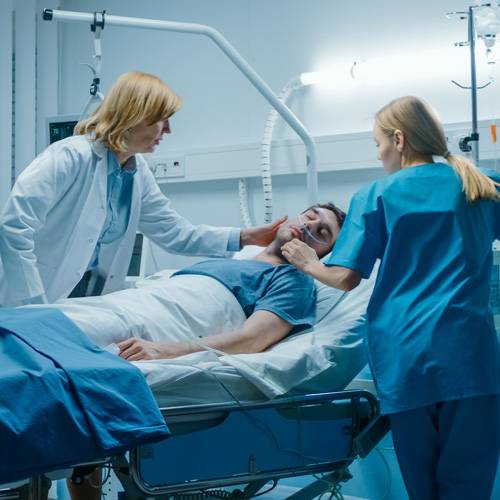The Department of Critical Care Medicine at Citizens Specialty Hospital is one of the most advanced and well-equipped facilities for providing customized and concentrated healthcare facilities to critically ill patients. Patients suffering from life-threatening conditions are admitted to this department. The physicians and paramedical staff aim to improve the patient's condition and stabilize vital organ functions.
The patients are provided guideline-based treatment backed up by authentic evidence. The team of doctors and supporting staff are skilled, extensively trained, and highly efficient in delivering healthcare services of the highest standards.
Patients admitted to our ICUs are also well supported by a team of multi-specialty medical and surgical consultants, whose services are available round the clock. Our team is also experienced in treating patients with multiple organ failure (MOF) and in communicating with and counseling patients and their families, particularly in palliative care.
The hospital is equipped with advanced and customized intensive care units. These include Medical Intensive Care Unit (MICU), Pediatric Intensive Care Unit & Neonatal Intensive Care Unit (PICU & NICU), Cath Lab and Coronary Intensive Care Unit (CICU), and High Dependency Unit (HDU).
Doctors & Trained Staff
Term Of Specialists
Patients From More Than 5 Countries
OT Departments
Our Blogs will keep you updated with the latest news,
campaigns, health and wellness updates you should know.




